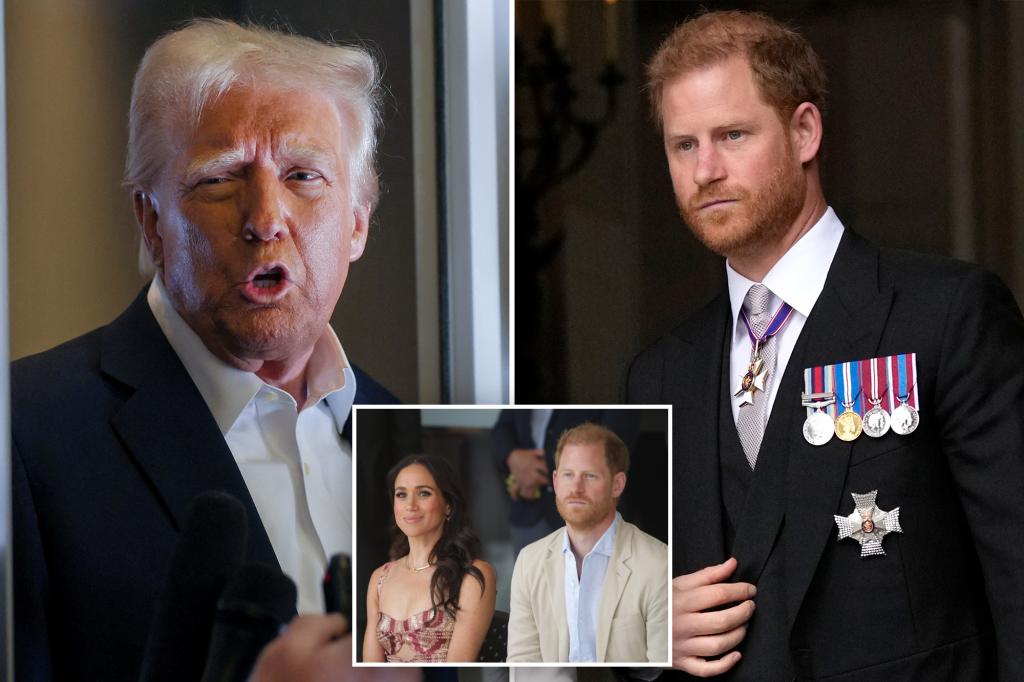Prince Harry’s immigration status in the United States is under scrutiny, with a court hearing scheduled to delve into his visa records. This legal battle stems from a lawsuit filed by the conservative think tank, the Heritage Foundation, which seeks to access Harry’s visa application. The foundation aims to determine whether the Duke of Sussex was truthful about his past drug use, a requirement for US visa applicants. Harry’s candid admissions in his memoir, “Spare,” regarding his experimentation with cocaine, cannabis, and psychedelic mushrooms, have fueled the foundation’s suspicions that he may have misrepresented his history on official forms. This raises questions about whether he provided false information or potentially received preferential treatment during the application process.
The upcoming court hearing marks a significant development in this ongoing saga. A federal judge has ordered both Prince Harry and the Heritage Foundation to appear in court, setting the stage for a legal showdown. This hearing holds particular weight given the political context, with former President Trump back in office. Trump has previously expressed his willingness to deport Harry, citing his belief that the Duke betrayed the Queen. Trump’s stance adds a layer of political intrigue to the legal proceedings, potentially influencing the outcome and Harry’s future in the US.
The core of the Heritage Foundation’s argument rests on the principle of transparency and accountability. They assert that no one, regardless of their status, should be above the law. They believe that accessing Harry’s visa records is crucial for upholding these principles and ensuring that immigration laws are applied equally to all. They argue that releasing the documents is in the public interest and necessary for maintaining the integrity of the immigration system. This perspective aligns with Trump’s stated focus on stricter border control enforcement, potentially strengthening their case in the current political climate.
Counterarguments presented by government attorneys and previous court rulings emphasize Prince Harry’s right to privacy. Despite the Duke’s public disclosures about his personal life in his memoir, a judge previously ruled that he maintains a reasonable expectation of privacy regarding his immigration records. This ruling underscores the delicate balance between public interest and individual privacy rights. The government’s position highlights the potential harm to individuals if sensitive personal information, even if voluntarily disclosed elsewhere, becomes readily accessible through official channels. This legal precedent could significantly influence the outcome of the upcoming hearing.
The potential implications of this case are far-reaching. If the court rules in favor of the Heritage Foundation, it could set a precedent for greater scrutiny of visa applications, potentially impacting individuals who have been open about past indiscretions. Conversely, a ruling in favor of Prince Harry would reaffirm the importance of privacy rights, even for public figures. Furthermore, the outcome could have significant political ramifications, impacting the ongoing debate surrounding immigration policy and the discretion afforded to government officials in handling such matters.
The upcoming court hearing promises a complex legal battle, weighing the principles of transparency and accountability against individual privacy rights. The outcome will undoubtedly have significant implications for Prince Harry, influencing his future in the United States. Furthermore, the case is likely to generate broader legal and political discussions regarding immigration policy, particularly concerning the treatment of high-profile individuals and the balance between public interest and personal privacy. With former President Trump’s stated position on the matter, the political stakes are high, adding another layer of complexity to this already contentious legal battle.

